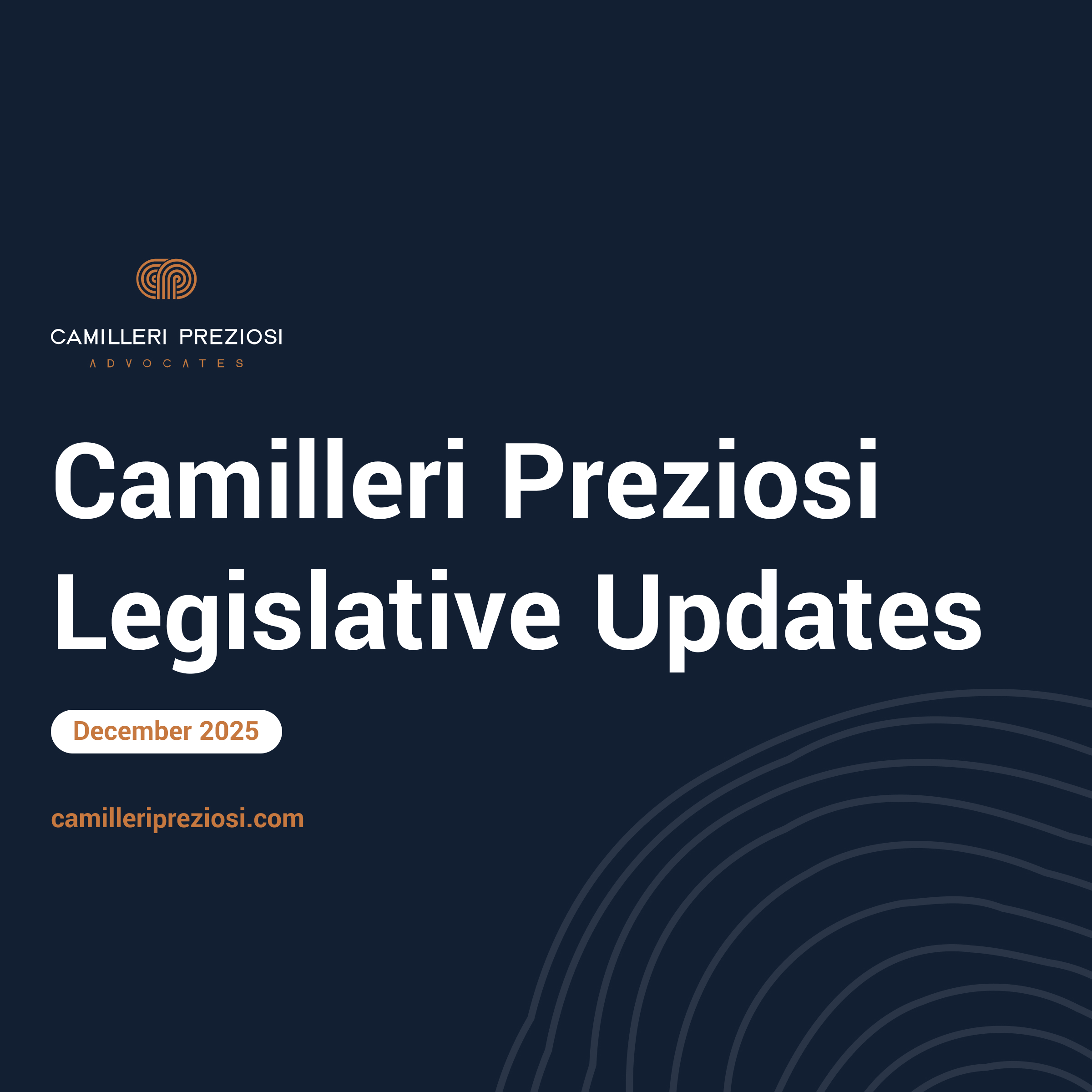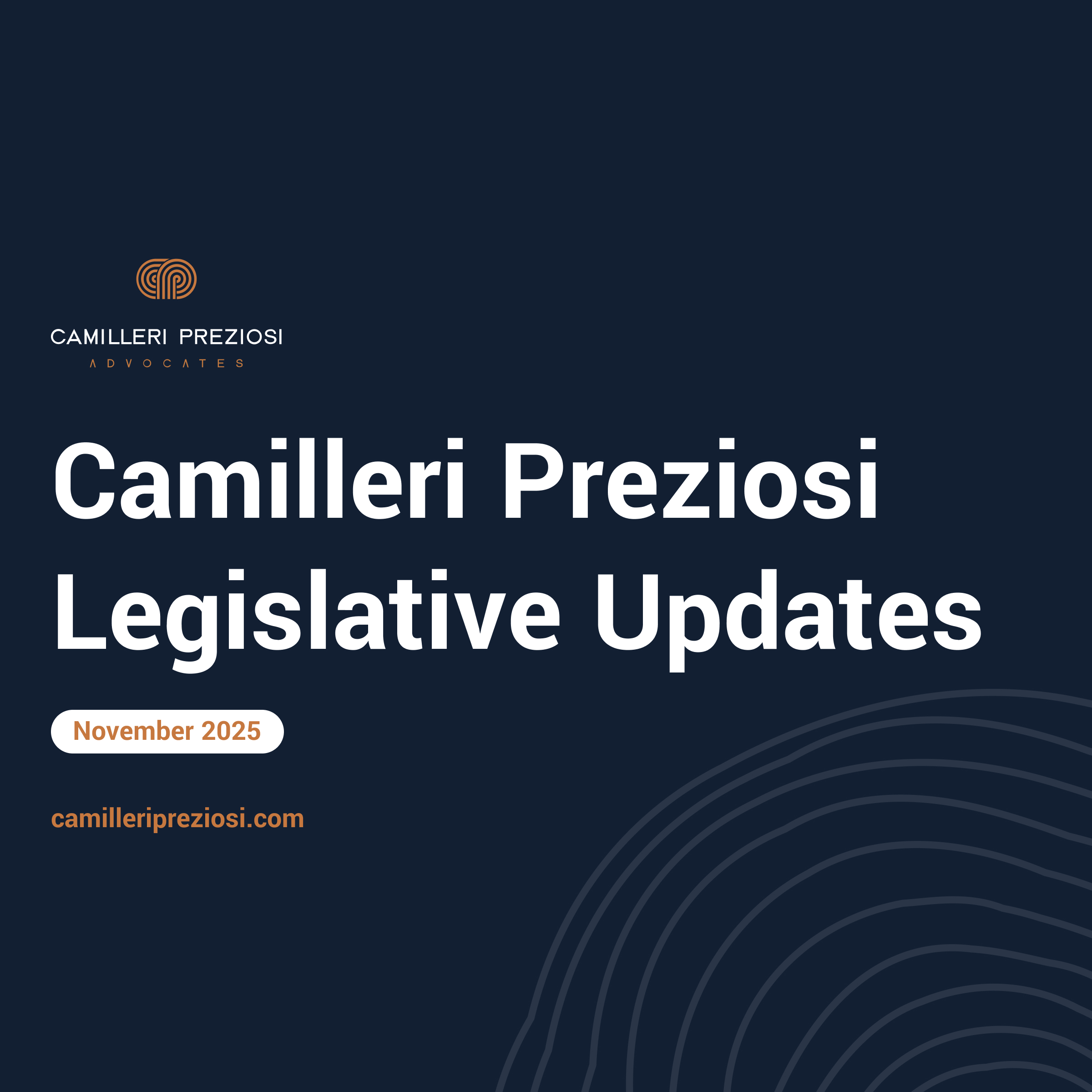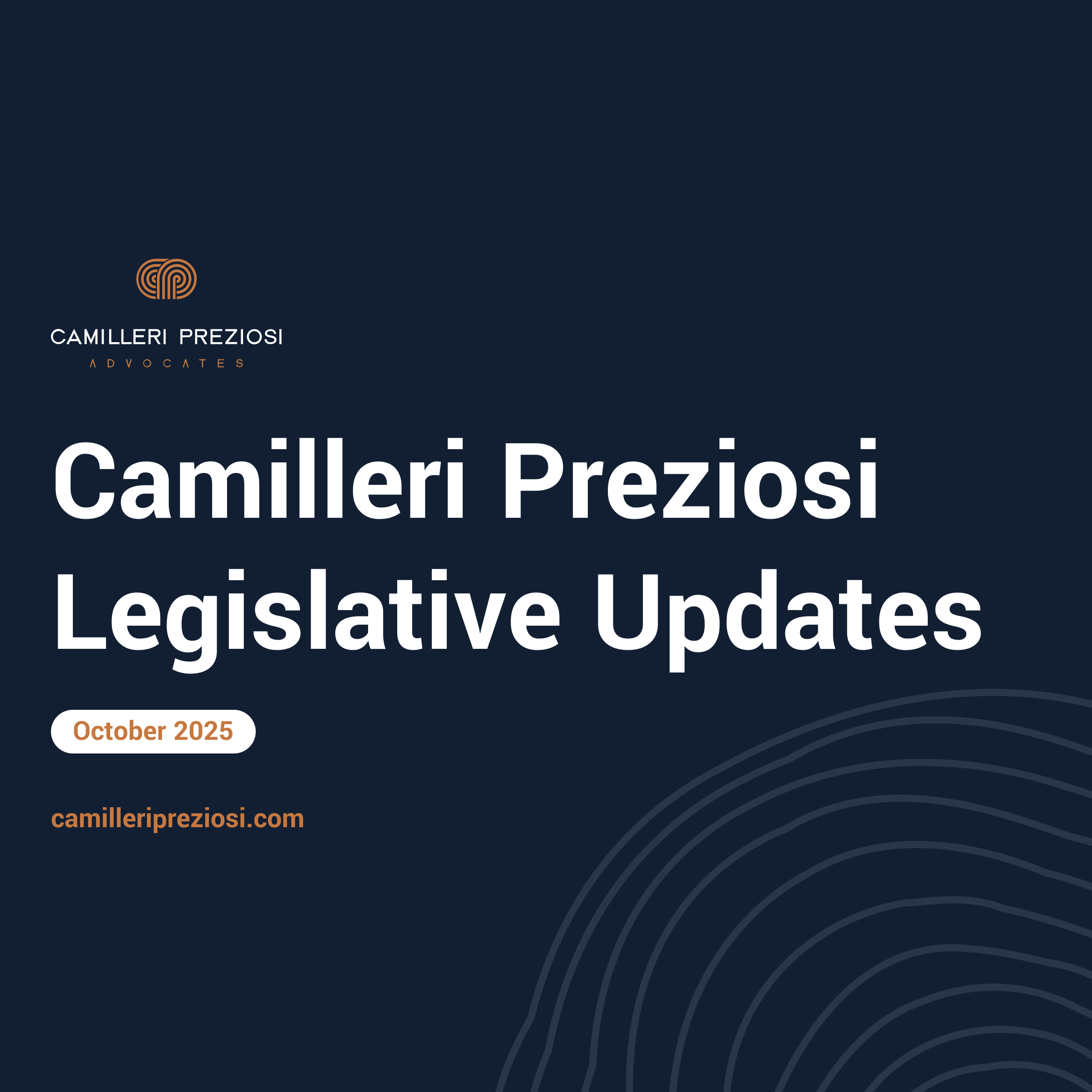Last month marked the close of the public consultation for the Bill issued by the Ministry for Justice, Culture and Local Government proposing extensive amendments to the Competition Act (the “Act”), amongst other legislation, in a reaction to a 2016 judgment of the Constitutional Court in the case Federation Of Estate Agents Vs Direttur Generali (Kompetizzjoni) et.
In brief, according to the Ministry, the proposed amendments have been triggered by the Constitutional Court’s decision where it concluded that the competition proceedings as currently found in the Act involved a criminal charge and should therefore comply with Article 39(1) of the Maltese Constitution.
Amongst the main changes being proposed by the Bill is the abrogation of the Competition and Consumer Appeals Tribunal and an extension of the Commercial Section of the Civil Court’s competence to matters regulated by the Competition Act (as well as the Consumer Affairs Act and the Malta Competition and Consumer Affairs Authority Act, amongst others). This Court will have the power to fully review and substitute its discretion for the Director General’s decisions upon the filing of a sworn application by the undertaking or association of undertakings concerned (in contrast, the current proceedings before the Tribunal require only an application). In what is presumably an acknowledgment by the legislator of the technical assessment of a competition law case which the Civil Court will be required to undertake following the proposed amendments, the Bill provides for a panel of technical experts to assist the Court when considering cases brought forward under the Act or the Consumer Affairs Act. It is also noteworthy that the Bill holds that instituting proceedings as above-mentioned brings about an automatic suspension of fines and, or penalties imposed by the Director General. Currently, as the laws stands, this matter is to be specifically requested by the applicant and deliberated on by the Tribunal. In a further nod to the importance of due process in proceedings which can be deemed to be criminal in nature, under the proposed regime any party to the above-mentioned proceedings has a right of appeal to the Court of Appeal on points of law and, or of fact – currently, a right of appeal only lies on points of law.
In order to further safeguard the rights of those under investigation for breach of competition law, the Bill proposes amendments to the Office for Competition’s investigation process, not least the need for a warrant from a Magistrate in order for the Director General and other officials to enter business or private premises to carry out searches, a requirement which currently only applies for searches in private homes. The Bill emphasises the right of those under investigation to be assisted by legal counsel, requiring officers to wait “a reasonable time” for such counsel to arrive on the scene before proceeding with investigations, in contrast to the current provisions which state that this right shall not delay an inspection. The right against self-incrimination of a person, undertaking or association of undertakings in the course of investigations, a principle emergent from the case law of the European Court of Justice, is also proposed to be explicitly laid down in the Act.
The Bill interestingly also purports to change the current settlement procedure introduced in the law in 2011 allowing parties admitting to participation in a cartel to benefit from a 10% reduction in fines. It is proposed that the scope of the settlement procedure is to extend to infringements of Articles 9 of the Act and, or Article 102 TFEU. Furthermore, in the reduction in fines imposed – the Director General’s discretion namely, a reduction by 10% has been increased in range to a reduction between 10% to 35%. This change appears to mirror the 2016 decision of the European Commission, where, for the first time, it used the settlement procedure for an abuse of dominance investigation, reducing the fine imposed on Altstoff Recycling Austria by 30% for its co-operation, and similar decisions taken in other Member States in recent years.
In what is perhaps an attempt at balancing the right to a fair trial with the need, in the public interest, to provide a strong deterrent to impeding investigations into competition law breaches, the Bill puts forward changes to applicable fines. The major change comes about for a person who, in the course of an investigation knowingly or recklessly (i) gives false, inaccurate or misleading information; (ii) produces, furnishes or knowingly allows to be produced or furnished documents or information which he knows to be false on any point; (iii) prevents or hinders the investigation or inquiry; (iv) fails to submit to an inspection or obstructs an officer acting under a Magistrate’s warrant as below explained; or (v) breaks seals fixed by officers during an inspection. While such behaviour (with the exception of a few) is currently liable to the payment of an administrative fine of not less than €1,000 and not more than €10,000, imposed by the Director General, the proposed changes make such actions an offence against the Act, and the person committing them is to be liable, upon conviction by the Court of Magistrates, in lieu, to a fine (multa) of not less than €1,500 and not more than €30,000 for cases falling within (i), (ii) or (iii) and, in respect of actions falling under (iv) or (v), to a fine (multa) or not less than €10,000 and not more than €50,000, apart from possible additional daily penalties as a percentage of turnover for failing to comply with orders to remove the causes of the offence..
Any submissions made to this public consultation are to be published at the end of the scoping phase.









